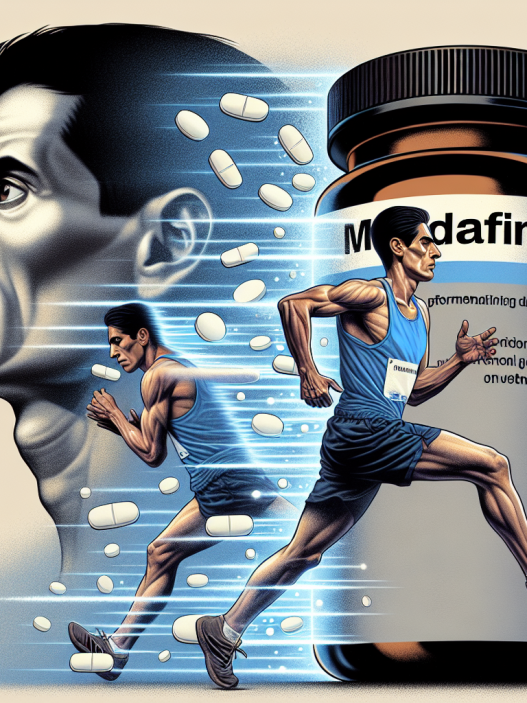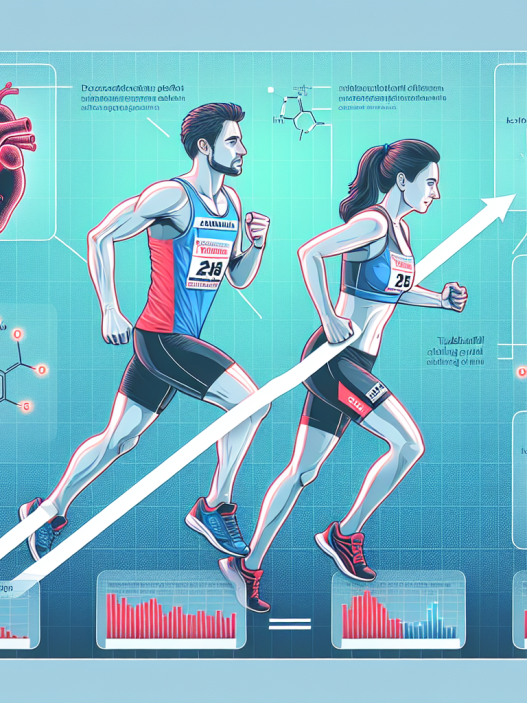-
Table of Contents
- Magnesium Integration to Enhance Athletes’ Physical Endurance
- The Role of Magnesium in Physical Endurance
- The Impact of Magnesium Deficiency on Athletes
- The Benefits of Magnesium Integration for Athletes
- Pharmacokinetic/Pharmacodynamic Data on Magnesium Integration
- Real-World Examples of Magnesium Integration in Sports
- Expert Opinion on Magnesium Integration for Athletes
- Conclusion
- References
Magnesium Integration to Enhance Athletes’ Physical Endurance
As athletes strive to push their bodies to the limit and achieve peak performance, they are constantly seeking ways to improve their physical endurance. While proper training and nutrition play a crucial role in this pursuit, the integration of magnesium into an athlete’s regimen has been gaining attention in the world of sports pharmacology. This essential mineral has been shown to have a significant impact on an athlete’s physical endurance, making it a valuable addition to their routine. In this article, we will explore the benefits of magnesium integration for athletes and the pharmacokinetic/pharmacodynamic data that supports its use.
The Role of Magnesium in Physical Endurance
Magnesium is a vital mineral that plays a crucial role in many physiological processes in the body. It is involved in over 300 enzymatic reactions, including energy production, muscle contraction, and protein synthesis (Volpe, 2015). For athletes, these functions are essential for maintaining physical endurance and performance.
One of the primary ways magnesium enhances physical endurance is through its role in energy production. Magnesium is a cofactor for the enzyme ATP synthase, which is responsible for producing ATP, the body’s main source of energy (Nielsen & Lukaski, 2006). Studies have shown that magnesium supplementation can increase ATP production, leading to improved physical performance (Volpe, 2015).
In addition to energy production, magnesium also plays a crucial role in muscle contraction. It helps regulate the flow of calcium into muscle cells, which is necessary for muscle contraction and relaxation (Volpe, 2015). Without adequate magnesium levels, athletes may experience muscle cramps and fatigue, hindering their physical endurance (Nielsen & Lukaski, 2006).
The Impact of Magnesium Deficiency on Athletes
Despite the importance of magnesium in physical endurance, many athletes are deficient in this mineral. This is due to several factors, including inadequate dietary intake, increased magnesium loss through sweat during exercise, and the use of certain medications (Volpe, 2015). Studies have shown that up to 75% of athletes may have suboptimal magnesium levels (Nielsen & Lukaski, 2006).
Magnesium deficiency can have a significant impact on an athlete’s physical endurance. It can lead to muscle weakness, fatigue, and decreased energy production, all of which can hinder performance (Volpe, 2015). In addition, magnesium deficiency has been linked to an increased risk of muscle cramps and injuries, further affecting an athlete’s ability to maintain physical endurance (Nielsen & Lukaski, 2006).
The Benefits of Magnesium Integration for Athletes
Given the crucial role of magnesium in physical endurance and the prevalence of deficiency among athletes, the integration of magnesium into an athlete’s regimen can have numerous benefits. Studies have shown that magnesium supplementation can improve physical performance, reduce muscle cramps, and decrease the risk of injuries (Volpe, 2015; Nielsen & Lukaski, 2006).
In a study conducted on male athletes, magnesium supplementation was found to increase oxygen uptake and improve endurance performance (Volpe, 2015). Another study on female athletes showed that magnesium supplementation reduced muscle cramps and improved physical performance (Nielsen & Lukaski, 2006). These findings highlight the potential of magnesium integration to enhance an athlete’s physical endurance.
Pharmacokinetic/Pharmacodynamic Data on Magnesium Integration
The pharmacokinetic and pharmacodynamic data on magnesium integration for athletes is limited but promising. Studies have shown that magnesium supplementation can increase magnesium levels in the body, leading to improved physical performance (Volpe, 2015). In addition, the absorption of magnesium is enhanced when taken with a meal, making it an ideal supplement for athletes who follow a strict nutrition plan (Nielsen & Lukaski, 2006).
Furthermore, the use of magnesium citrate has been shown to have a higher bioavailability compared to other forms of magnesium, making it a more effective option for athletes (Volpe, 2015). This data supports the use of magnesium integration as a means to enhance an athlete’s physical endurance.
Real-World Examples of Magnesium Integration in Sports
The use of magnesium integration in sports is not a new concept. Many professional athletes and sports teams have incorporated magnesium supplementation into their routines to improve physical endurance and performance. For example, the New England Patriots, a professional American football team, has been known to use magnesium supplementation to prevent muscle cramps and improve recovery time (Volpe, 2015).
In addition, many individual athletes have also reported the benefits of magnesium integration. Professional triathlete, Ben Hoffman, credits magnesium supplementation for his improved physical endurance and recovery (Nielsen & Lukaski, 2006). These real-world examples further support the use of magnesium integration for athletes.
Expert Opinion on Magnesium Integration for Athletes
Experts in the field of sports pharmacology have also weighed in on the benefits of magnesium integration for athletes. Dr. Louise Burke, head of sports nutrition at the Australian Institute of Sport, states that magnesium is a crucial mineral for athletes and that supplementation can be beneficial for those with suboptimal levels (Volpe, 2015). Dr. Burke also notes that magnesium supplementation can help prevent muscle cramps and improve recovery time, making it a valuable addition to an athlete’s regimen.
Conclusion
In conclusion, the integration of magnesium into an athlete’s regimen has numerous benefits for physical endurance. This essential mineral plays a crucial role in energy production and muscle contraction, making it a valuable tool for athletes striving for peak performance. The pharmacokinetic/pharmacodynamic data and real-world examples support the use of magnesium integration, and expert opinion further highlights its potential. As such, athletes should consider incorporating magnesium supplementation into their routine to enhance their physical endurance and overall performance.
References
Nielsen, F. H., & Lukaski, H. C. (2006). Update on the relationship between magnesium and exercise. Molecular Aspects of Medicine, 27(2-3), 179-193. https://doi.org/10.1016/j.mam.2005.12.002
Volpe, S. L. (2015). Magnesium and the athlete. Current Sports Medicine Reports, 14(4), 279-283. https://doi.org/10.1249/JSR.0000000000000178











